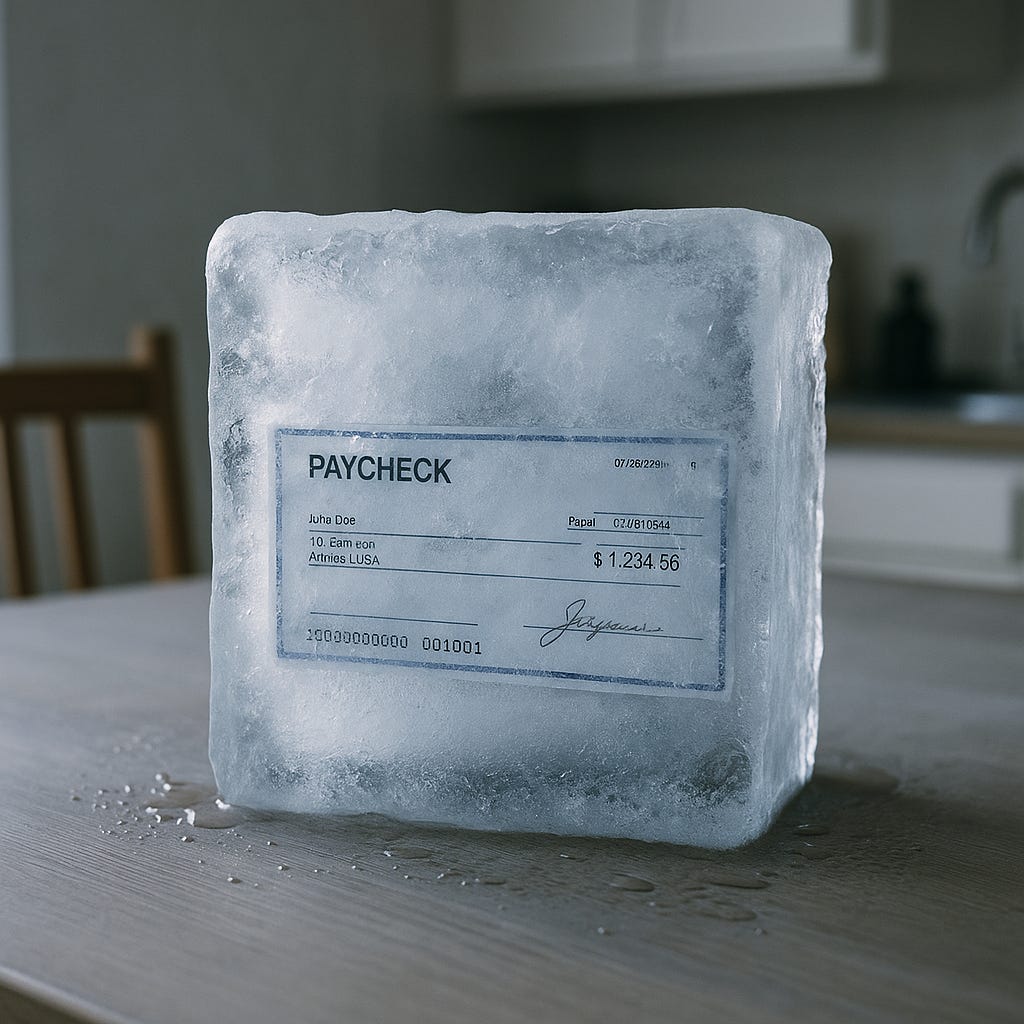The Shutdown Exposed a Capitalism in Crisis
The Shutdown That Fed Capitalism Its Own Workers
Day 40: In Atlanta, a TSA agent faints mid-shift from low blood sugar. No paycheque since October. Across America, 1.4 million federal employees are living this slow-motion disaster — some furloughed, others working without pay, all trapped in the world’s most expensive experiment in self-sabotage.
This is the twenty-second U.S. government shutdown since 1976 and the longest since 2019. It began with a dispute over Affordable Care Act subsidies: Republicans demanded a “clean” funding bill with no extension of health credits, Democrats refused to reopen government without protecting the subsidies that keep millions insured. The impasse closed agencies, froze pay, and left even back pay uncertain.
The playbook is familiar: crash the system, then blame the government for not working. “This is what happens when you let bureaucrats run wild,” tweeted Senator Rick Scott, whose net worth is about $530 million. For those earning $58,000, the median federal salary, that line lands like a joke told by the landlord.
Behind the statistics sit real stories: a single mother in Maryland who cleans military housing on base, now choosing between nappies and petrol; a meteorologist in Kansas who can’t pay for his insulin; a park ranger in Oregon selling camping gear online to cover rent. None of them started this fight, but all of them are paying for it.
Two-thirds of Americans live paycheque to paycheque. Forty days without income means late rent, cancelled prescriptions and debt traps. A 2024 Consumer Financial Protection Bureau study found 38 per cent of unpaid federal workers took payday loans, averaging 391 per cent interest. For people already stretched by inflation and credit-card debt, that’s not a bridge — it’s quicksand.
The pain radiates outward. The FAA has cut 10 per cent of air traffic to keep skies safe with unpaid controllers. Travellers wait hours as skeleton crews work beyond safe limits. Food aid through SNAP — lifeline to 42 million Americans — was reduced, restored and suspended again as courts, states, and agencies contradicted each other. Food banks report record queues, some stretching for blocks, staffed by volunteers who are often federal employees themselves. The United States has breadlines again, but this time by policy choice, not economic collapse.
What’s on display is not just dysfunction — it’s capitalism turning on itself. For decades, Americans were told the free market rewards effort and punishes waste. Yet the workers who keep the nation running are unpaid while corporations post record profits. In 2023, Amazon spent $18 billion buying back its own stock, even as one in ten warehouse employees relied on food stamps. Airlines issued shareholder dividends while TSA officers worked unpaid to keep passengers moving. When billion-dollar firms are rewarded for self-enrichment and public servants beg food banks for groceries, the logic of the system has inverted. Capitalism, left ungoverned, doesn’t simply exploit labour — it devours the people who make it possible.
The pattern is clear: when a crisis hits, workers are told to sacrifice, and companies are told to “streamline.” The language of markets disguises the imbalance. “Fiscal prudence.” “Budget discipline.” “Spending cuts.” Washington uses these phrases as if they’re arithmetic, not ideology. But behind them lies a moral decision: some lives are worth less than balance sheets. The shutdown shows how language launders cruelty — by making deprivation sound responsible.
There’s a deeper corrosion at work too: the slow collapse of public faith. People see government jobs that don’t pay, services that don’t run, and leaders who treat the social contract like a bargaining chip. The myth that democracy and capitalism naturally reinforce each other looks thinner with every unpaid shift. The shutdown doesn’t just empty wallets — it hollows out belief.
The Senate is inching toward reopening government, but recovery won’t be instant. Missed payments don’t vanish, and neither does public trust. A 2024 USDA study found childhood food insecurity causes measurable IQ loss by age five. That’s the legacy of governing by crisis. It’s the quiet, permanent cost of political theatre.
Western democracies should take note. Across Europe and beyond, austerity budgets and tax breaks for the wealthy are sold as “discipline,” while public systems erode beneath them. What’s unfolding in America isn’t an anomaly — it’s a warning. When the next economic shock arrives, it will show how many of our societies are already starving the people who keep them alive.



